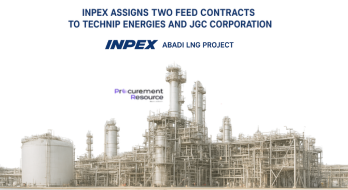The World Bank to Sanction USD 46.25 million to Uzbekistan for Cleaner Energy Initiatives
.webp)
The World Bank and Uzbekistan's government have come to an agreement concerning the allocation of $46.25 million to back a new initiative. This project has been designed to substantiate Uzbekistan's shift towards clean energy, enhancement of energy efficiency, and a transformation of its energy subsidy mechanisms.
This endeavor is primarily financed by the World Bank's TCAF and goes by the name "iCRAFT." What's noteworthy is that this project is a pioneering global effort by the bank, aimed at endorsing policy shifts via compensations tied to emission cutbacks.
Request Access To The Latest Price Trends of Natural Gas
Uzbekistan, often cited as one of the global leaders in energy consumption and emissions, operates on substantial subsidies. Such financial backing leads to suppressed prices for electricity and natural gas, which unfortunately doesn't generate enough revenue to cover the associated production and distribution expenses.
Given the current pricing structure, energy conservation efforts have not been particularly encouraged. To address this, the government is ushering in reforms to the energy subsidy system. These changes are intended to recalibrate tariffs so that they more accurately reflect the actual costs of energy.
Tatiana Proskuryakov, the World Bank's point person for Central Asia, has voiced her opinion on the matter, stressing the significance of this venture. She believes that such strategic shifts in the energy domain can potentially bolster Uzbekistan's financial standing while concurrently bringing down the emission levels.
Additionally, this initiative is set to offer protection to households potentially affected by the energy tariff tweaks. The allocated funds will not only cover this aspect but will also accelerate the country's green transition strategy and other such reformative agendas.
The iCRAFT Project holds a special place in history, being Central Asia's first carbon finance endeavor under the Paris Agreement's umbrella. Jamshid Kuchkarov, holding a dual role as Uzbekistan's Deputy Prime Minister and the WBG Governor, shared insights on the project's potential impact. He emphasized how it might slash carbon dioxide emissions significantly and offer Uzbekistan an avenue into global carbon marketplaces.
Read More About Natural Gas Production Cost Reports - Get Free Sample Copy in PDF
This pioneering project is not just a stand-alone initiative. It is viewed as a potential model that could guide other World Bank member nations in similar ventures in the foreseeable future.
According to the article by Procurement Resource, the World Bank and Uzbekistan are investing $46.25 million in "iCRAFT," a project promoting clean energy and revised energy subsidies. Funded by the World Bank's TCAF, it's an initiative to incentivize policy changes related to emission cuts. Given Uzbekistan's energy inefficiencies and subsidized pricing, the aim is to adjust tariffs to mirror real energy costs. This move could be economically beneficial for Uzbekistan and reduce emissions. Additionally, the project will aid households impacted by tariff changes. As a pioneering effort in Central Asia under the Paris Agreement, iCRAFT may influence similar future ventures.


.webp)
